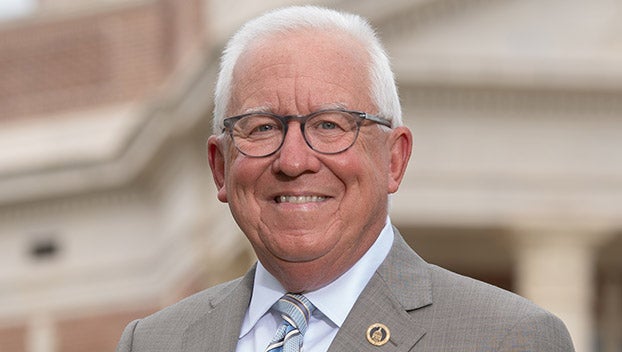USM’s new president making $650,000; all of Mississippi’s public college presidents saw raises this year
Published 7:14 am Sunday, December 4, 2022
by Molly Minta
Mississippi Today
Joe Paul is being paid an annual salary of $650,000 as the 11th president of University of Southern Mississippi, according to a copy of his contract the Institutions of Higher Learning provided to Mississippi Today.
The salary makes Paul the third-highest paid college president in Mississippi and represents a $50,000 raise over that of his predecessor, Rodney Bennett, the university’s first Black president who departed earlier this year.
Paul’s contract, which ends on Oct. 31, 2026, shows he is making $450,000 in state funds, the same amount he was making as interim president. He is also receiving a $200,000 supplement from the University of Southern Mississippi Foundation, a decrease in the supplement the foundation paid to Bennett.
In Mississippi, the presidents of the state’s eight public universities are permitted by the Board of Trustees to boost their taxpayer-funded salaries with private, foundation-funded dollars. They are also allowed to receive income from “outside employment” as long as they request prior approval from the board in writing.
Other details from Paul’s nine-page contract include a hefty payout if the board terminates him in the next two years – $900,000, equal to two years’ salary. After October 2024, Paul would receive the remainder of his salary. He is also required to live on campus and was provided up to $15,000 in moving expenses to relocate, a standard benefit that other college presidents receive.
Paul was originally supposed to lead USM in the interim as the board looked for a new president – a short-term charge that was reflected in his initial 7-month contract the board approved in executive session in June.
At that same June meeting, the board also voted to raise the state-funded salaries of all eight college presidents. When the board voted to pay Paul $450,000, it also increased the state-funded portions of the salaries of Mark Keenum (Mississippi State University), Glenn Boyce (University of Mississippi) and Thomas Hudson (Jackson State University) to $450,000.
Though the board has in the past announced changes to presidential salaries in press releases, this information was not made publicly available until minutes of the executive session were published in August, two months after the raises were granted, because the board did not meet in July.
Hudson, who was previously making $375,000 as president of Jackson State University, now makes $455,000 with his foundation supplement. Keenum and Boyce now make $850,000, up from $800,000 last year.
Since 2017, IHL has sought to pay the presidents of the state’s top research universities the same state-funded amount. Due to the difference in the amount each school’s foundation can pay, historically the college presidents have been compensated in that order: UM and MSU at the top, followed by USM then JSU.
IHL also approved across-the-board reductions in the amount that university foundations can pay presidents – figures that vary dramatically. Keenum and Boyce are now permitted to take $400,000 from their university foundations, but Hudson can only receive $5,000, per the June meeting minutes. Previously, Hudson received a $75,000 supplement from JSU’s foundation.
The state’s two other historically Black colleges – Mississippi Valley State University and Alcorn State University – as well as Mississippi University for Women also had their foundation supplements limited to $5,000. (The board did not approve a foundation supplement for Delta State’s interim president.)
The state-funded salaries of Jerryl Briggs (MVSU), Nora Miller (MUW) and Felecia Nave (ASU) were increased to $300,000.
As the board has granted raises for the university presidents, faculty and staff have barely seen their pay increase in the last decade, according to data from the U.S. Department of Education. The average faculty member in Mississippi took home $65,827 in 2020, up from about $58,000 in 2012. The average staff member made $47,612 that same year, an increase of a little more than $6,000 since 2012.
The board also approved a “retention” pay plan for Boyce at the meeting in June. If he stays on as chancellor at UM through the end of his contract in June 2024, the university foundation is now permitted to pay him a bonus up to $400,000.
When the board granted Keenum the opportunity for a similar bonus last year, he wrote to MSU’s foundation that he would like “a majority, if not all” of the retention funds to go to student scholarships.






